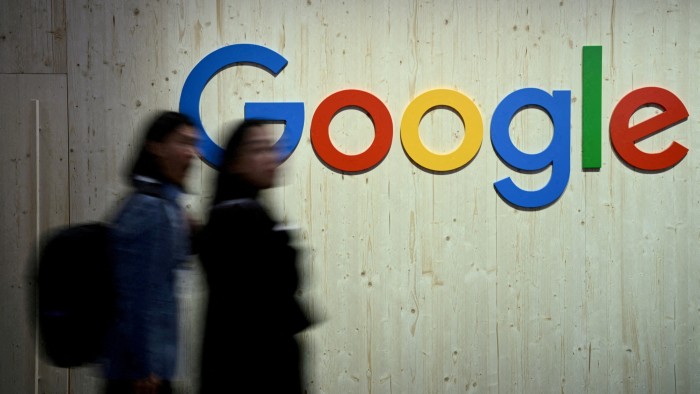Unlock the Editor’s Digest for free
Roula Khalaf, Editor of the FT, selects her favourite stories in this weekly newsletter.
Innovation leads, and regulation follows. Even so, the UK competition watchdog’s efforts to rein in Google are out by a country mile. While there are potential dangers to the search giant’s dominance, including large language models such as Open AI, slowcoach rulemaking is not one of them.
The Competition and Markets Authority, which listed a series of possible measures against Google on Tuesday, is in familiar territory. The EU, Japan and Australia have all imposed various limitations; in the US the Department of Justice has long accused it of monopolising digital ad markets.
The CMA’s case is that Google’s dominance in search — more than 90 per cent of both traffic and ad revenue — enables it to extract more money from UK advertisers.
True enough, but it could hardly be otherwise. Outsize market share is a hallmark of anything that relies on scale, network effects, access to data and compute power — a category that also includes social networking and artificial intelligence chatbots. Even in China, a counter-intuitively competitive marketplace for search, the dominant Baidu hosts more than half the traffic.
Should the CMA opt to award Google its strategic market status label when the probe concludes in October, it must decide what curbs that brings. Some of the initial proposals, which the CMA would implement shortly after the designation, are sensible and straightforward to enact.
These include making choices, rather than Google, the default on the company’s web browsers and ensuring publishers’ content is attributed. Trickier and more time intensive: providing sufficient transparency on what is and isn’t paid for in Google’s ranking and search results.
Further stipulations will entail further consultations. And take time, because debate will be fierce. Users like convenience, but businesses have other concerns: raunchy retailer Ann Summers gripes that turning off the SafeSearch filter still leaves its “basic everyday” lace underwear invisible.
Rules on search engines can be distortive, shunting business from one set of actors to another without necessarily benefiting consumers. After the EU’s Digital Markets Act eliminated Google Flights, aggregators like Skyscanner benefited. But airlines harrumph that free direct booking clicks are down as much as 30 per cent. EasyJet even blames this for late flights.
Of course, these rules are no fun for Google either. Compliance is not just about hiring shoals of lawyers, but also having plenty of engineers on board to tailor products for a global latticework of rules and regulations.
But if that is the cost of being a monolith, the benefits still win out. Big Tech, like Big Pharma, will always be caught up in wrestling matches with sovereigns. The blessing for Google is that, in the UK at least, the balance of strength lies on its side.




